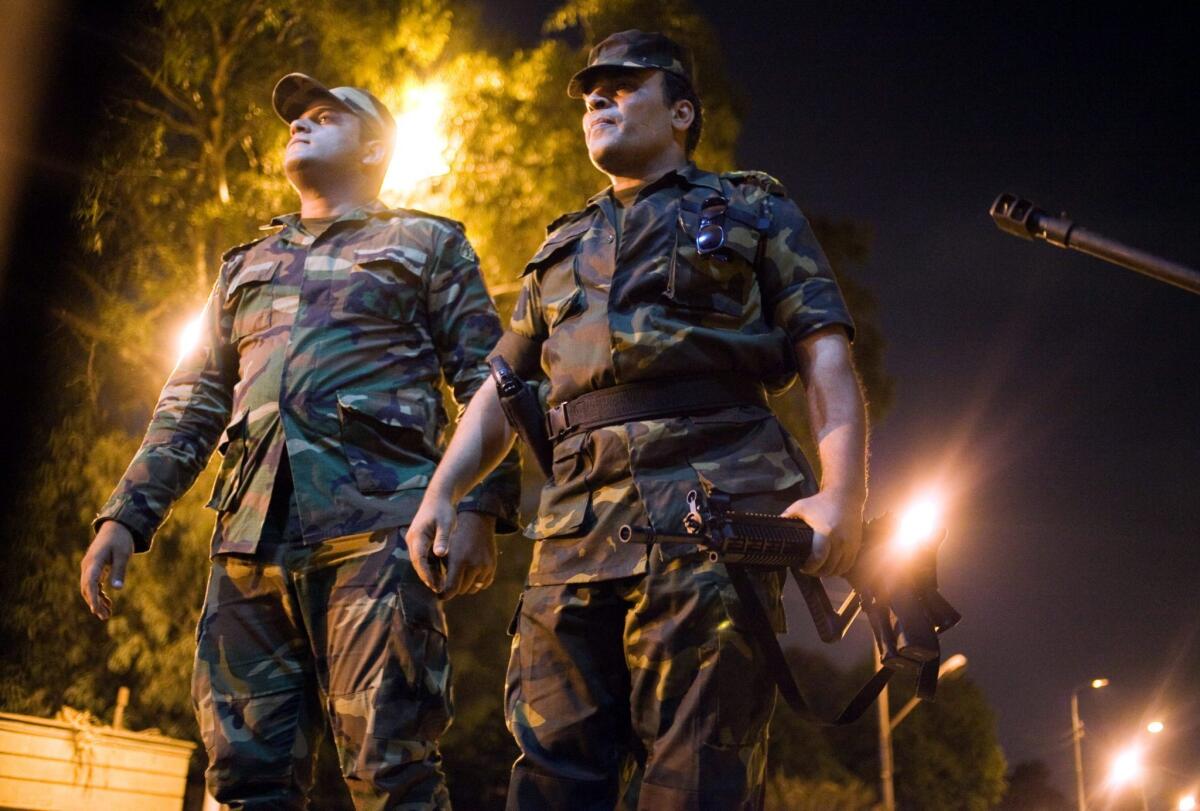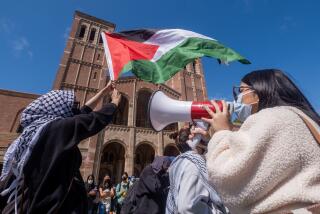Overthrowing democracy in Egypt

Once the dust settles from Egypt’s military coup Wednesday, the main victim won’t be President Mohamed Morsi or the Islamists, who are survivors by nature. The real casualty will be democracy and people’s faith in it. Egyptians will have lost their best chance at being an active part of their country’s governance in more than 5,000 years.
President Obama said he was “deeply concerned” about the coup. But the U.S. should also do some soul-searching; America’s long relationship with Egypt’s military has included funding, training and propagandizing, and many in Egypt can’t help but feel that helped enable the coup.
So much is at stake. Through several rounds of elections, Egyptians young and old showed the world what desire for change and hope looks like as they lined up for hours in the desert heat to cast a ballot and have a say for the first time in the future of their country.
PHOTOS: Massive protest against President Morsi in Egypt
As a journalist, I covered the Arab Spring, thrilled to see young women fashionably dressed in Western clothes voting alongside women in niqab, the head-to-toe covering favored by many pious Muslims. The bawab, or door guard, for my building showed up in his worn clothes to stand in line with wealthy homeowners. Egyptians certainly differed in their ideas about the country’s future, but as one they embraced the essentials of democracy: a constitution, a parliament, a new president.
In the end, Morsi became the first Arab leader to claim office with less than the usual 90% vote that dictators traditionally get in the fake elections held in neighboring Arab countries.
But then, on Tuesday night, I sat in front of the TV screen as the fragile dream was destroyed. I watched as Egypt’s special forces, an elite squad of the brutal Interior Ministry, pulled up in their Humvees and fired on civilians protesting outside Cairo University. I couldn’t help but think, as I watched the horrific footage, that this was the spot where President Obama spoke a few years ago about peace and the end of terrorism to the Muslim world. But where would the repressive Egyptian military be today without the United States?
Gen. Abdel Fattah Sisi, who got his master’s degree at the U.S. Army War College, promised transparency and freedom in his speech declaring the coup Wednesday, and several civilians were arrayed next to him. But as Sisi spoke, all channels that supported Morsi or questioned the coup were being shut down.
This was a tragic end to the country’s nascent democracy, and a preview of what is to come for Egypt.
Why did it happen? Because some powerful forces had much to fear from democracy and much to gain by destroying it.
The military, which has for decades received immense financial benefit from being in control, obviously had the most to gain. Under Mubarak, officers grew used to being given huge tracts of land, membership in exclusive clubs and discounts on just about every purchase. But there is also an elite group of civilian Egyptians who will benefit from military rule and who were willing to sacrifice democracy and lend a civilian face to the coup.
Among them is the increasingly militant Egyptian Coptic Church, which controls the country’s 5 million Christians, who in turn control major economic interests. Morsi and Islamist legislators have clashed with Christian clerics over security and financial scrutiny of religious institutions. So it was perhaps no wonder that the Coptic Pope Tawadros II urged his supporters to the streets to ask for Morsi’s ouster.
Another factor was the police force, which never embraced democracy, fearing that its leaders were likely to end up in court accused of human rights abuses.
Some Muslim groups that were out of step with Islamists also favored Morsi’s overthrow. They included the head of Al Azher, a bastion of Sunni Islam, and Salafists, a religious group backed by Saudi Arabia. Their brand of Islam is to never contest “the ruler in his rule” and just stick to the religious conservative side of Islam, very much like the religious system in Saudi Arabia. This stands in direct opposition to the Muslim Brotherhood line, which advocates political involvement.
These diverse interests found their rallying point in Sisi. The ambitious general was little known before the coup, but it appears he’s intent on destroying democracy.
To be sure, Morsi and the Islamists made many mistakes. Morsi acknowledged that in his last speeches, and promised to correct his course. But even if he hadn’t, the way to solve problems of leadership has to be through the ballot box, not through a military coup that has bloodied both the Egyptian people and the democracy they have struggled to create.
Emad Mekay is an Egyptian journalist currently working for the Investigative Reporting Program at UC Berkeley. Previously, he worked for the New York Times and Bloomberg News in the Middle East.
More to Read
A cure for the common opinion
Get thought-provoking perspectives with our weekly newsletter.
You may occasionally receive promotional content from the Los Angeles Times.










